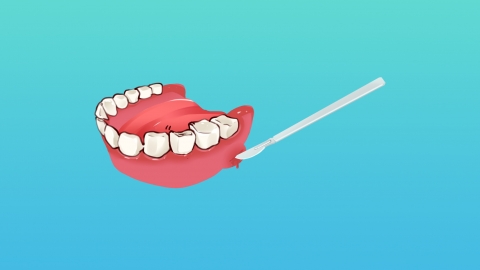Can tooth brushing cause gum recession?
Generally speaking, whether tooth brushing can cause gingival recession depends on the brushing technique used. Brushing teeth properly usually does not lead to gingival recession, whereas incorrect brushing methods may trigger it. The detailed analysis is as follows:

If proper brushing techniques are adopted—such as using a soft-bristled toothbrush, applying the Bass brushing method, and maintaining appropriate brushing pressure—it effectively removes food debris and plaque from teeth and gingival sulci without causing excessive irritation or damage to the gums, thus preventing gingival recession.
However, improper brushing habits—such as using a hard-bristled toothbrush, brushing too forcefully, or using a horizontal sawing motion—can repeatedly irritate the gum tissue over time. This may lead to gum injury and inflammation, resulting in gradual gum recession. Additionally, such practices may wear down the cervical region of the teeth, causing wedge-shaped defects and worsening oral health problems.
To prevent gingival recession, it is important to use a soft-bristled toothbrush daily, learn and consistently apply correct brushing techniques, control brushing force to avoid over-brushing, and complement brushing with dental floss or interdental brushes to clean between teeth. Regular dental check-ups and professional cleanings are also recommended to remove tartar promptly, maintain gum health, and reduce the risk of gingival recession.







